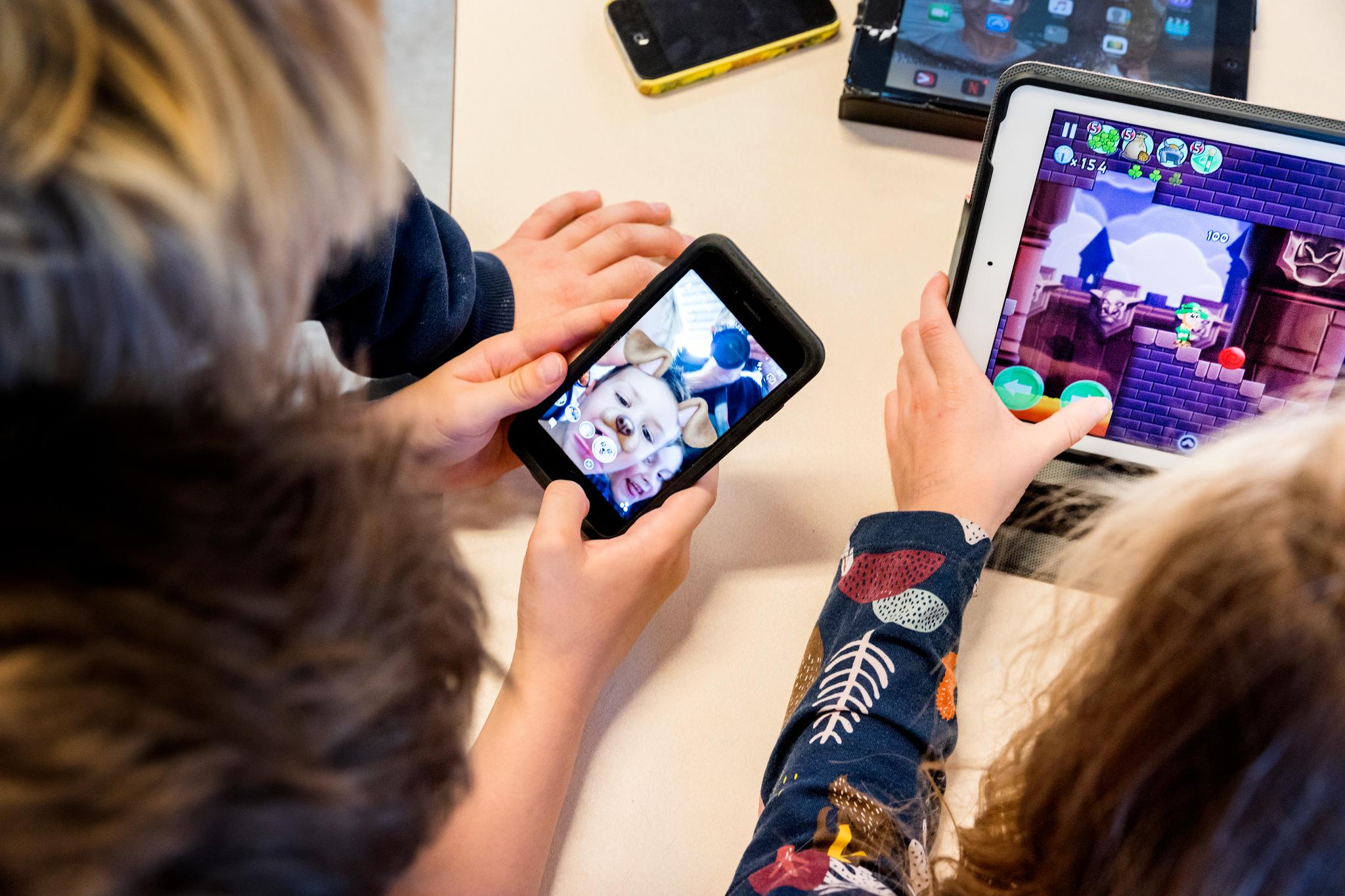Norway is at the forefront of the use of digital tools in schools. At the same time, the results that map what the students have actually learned plummet. Now the Minister of Education is pulling on the emergency brake.
Most schools in Norway use digital tools for teaching. Photo: Gorm Kallestad, NTB
Sea view
Published: 23/01/2024 19:39
The short version
- Education Minister Kari Nessa Nordtun is working to limit the uncritical use of digital tools in schools.
The summary is created with the help of artificial intelligence (AI) and quality assured by Aftenposten’s journalists.
Short version is for subscribers only
– The development must turn around.
This is what Minister of Education Kari Nessa Nordtun (Ap) tells Aftenposten.
During the last few years, the vast majority of schools in Norway have given out iPads and other digital devices for teaching. The purchases of the units have been made at municipal level.
Minister of Education Kari Nessa Nordtun (Ap) wants to stop the uncritical digitization. Photo: Olav Olsen, Aftenposten
Sea view
But the iPads the students have been given by the school have created both challenges and frustration at home for mother-of-three Imke Symens.
The parents are responsible
When Symens’ youngest daughter started primary school, she was told that the first-grader had to take the iPad home with her every day after school. She also received a letter dealing with consent on liability. If the child is negligent and destroys the iPad, it is the guardians who are responsible for compensation.
But Symens neither wanted to be liable for compensation for the iPad, nor to have it at home after school. She has previously experienced with her eldest children that when they finished their homework, they were left sitting in front of the screen.
– It is so easy to pick it up and use it, and suddenly an hour has passed, she says.
And after seven years with an iPad in the home, Symens decided to put its foot down.
– With my youngest daughter, I chose not to sign, because I don’t want the iPad at home anymore, she says.
The iPad probably has positive aspects, but Symnes cannot see that her children have had much learning benefit from it.
School pupils must take the iPad home to do homework. Photo: Bjørge, Stein / Aftenposten
Sea view
Confidence in the school
Høyre’s school policy spokesperson, Jan Tore Sanner, says that it is the school and the teachers who are responsible for deciding what promotes the best learning. Whether it’s pen, paper or digital tools.
It is clear from the curriculum that students must use both parts, he says.
It is important to have confidence that the schools use the tools that promote the best learning, and not step over what is the school’s responsibility, Sanner points out. But it is a political responsibility to contribute to the school having a real choice.
– I agree that you must have good school and home cooperation. But the school has skilled teachers, so we parents must make sure that you learn to log out of your mobile phone and iPad at home. It is an important part of parental responsibility, says Sanner.
Jan Tore Sanner is Høyre’s school policy spokesperson. Photo: Siri Øverland Eriksen / Aftenposten
Sea view
An important competence that was defined in the subject renewal was digital judgement. It is about the students learning critical thinking, and relating to digital platforms and learning how to log out, he explains.
No control over what the children watch
The children of Symens have mobile phones. There she can see which apps they use, how long they spend on an app, and decide which content they can search for.
– I can’t do that on the iPad, she says.
You have no control over how much time or which app is used. This means that you have to pay extra close attention to what children are doing on the iPad, she says.
Symens has investigated the extent to which the iPad of her youngest daughter is filtered. She says that a lot of content was blocked, but that she found scenes from the movie “Halloween” on YouTube. According to Symens, the scenes were far too scary for a child.
Funds set aside for physical textbooks
Nordtun explains that they will stop the uncritical digitization together with municipalities, county councils, school pupils and teachers.
– The government’s screen use committee, which delivers its final report this autumn, will be important for drawing up national policy in this area, but it is important that this is already thoroughly discussed in municipalities and in schools, she says.
In the state budget, funds have been earmarked for physical textbooks and strengthened municipal finances so that local politicians can make the same priorities within their own budgets.
Priority has also been given to funds for competence development, projects to encourage reading and increased investment in school libraries in the state budget, Nordtun explains.
2024-01-23 18:39:10
#Minister #Education #digitization #primary #schools #development #reverse
